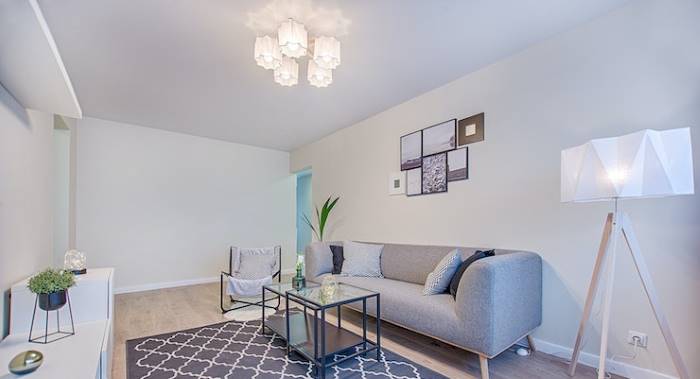Before becoming a landlord, I had no idea how to manage rental property. I never had my own rental property before (or owned a home at all).
However, after being a landlord for several years now and operating as my own property manager, I feel confident that this guide will help you with managing rental properties.
This guide will be pretty lengthy, so I recommend bookmarking this page and referring to it in the future. It’s very likely that there will be more rental property management tips and advice on this page for DIY landlords in the future.
Let’s get into it.
In order to become a great property manager, you need to learn and understand the systems and materials used on your rental property. This knowledge will allow you to focus a lot of your attention on being proactive instead of reactive (which is unfortunately how most landlords doing their own property management operate).
By being proactive, your rental property will function as an investment property. You’ll be able to properly allocate the rental income and perform regular maintenance (or purchase capital expenditures) before it’s an emergency. You’ll also be less stressed when managing your rental property.
So, I’ll start by giving you a list of systems you should learn about in your rental property.
Table of Contents
Learn your systems
The plumbing systems you absolutely need to know and understand for your rental property are:
- The water supply system
- The sewage drainage system
- The stormwater drainage system
- The natural gas system
While less important given its longevity and simplicity – if you have natural gas, it may be helpful to understand that system as well.
The Water Supply System
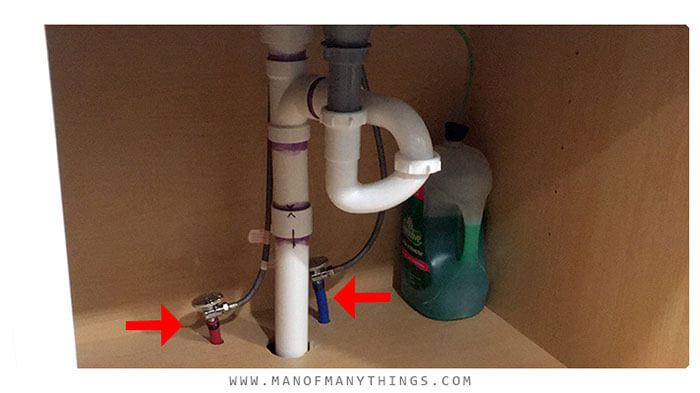
The questions you should be asking and learning the answers to are:
- What materials are being used for the supply lines?
- Are those materials safe?
- What’s the useful life of those materials?
- How much life (if any) is left in those materials?
- What repairs or modifications can be made to improve the lifespan or prevent emergencies?
- Does each bath/shower have an access panel for its plumbing? (it should)
- Where are the shut-off valves? (whole house and each individual fixture)
- What type of shut-off valves do I have? (I prefer replacing all shut-offs with ball valves)
- What’s the useful life of the water heater?
- How much useful life is left for the water heater? (if unsure or less than 1 year, replace it)
The Sewage Drainage System
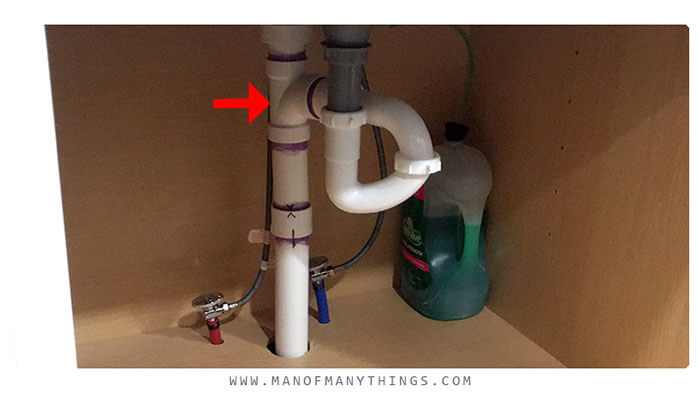
- What materials are being used for the sewage drainage system?
- What’s the useful life of those materials?
- How much life (if any) is left in those materials?
- What repairs or modifications can be made to improve the lifespan or prevent emergencies? (For example, I like to snake all drains and replace anything that looks questionable)
The Stormwater Drainage System
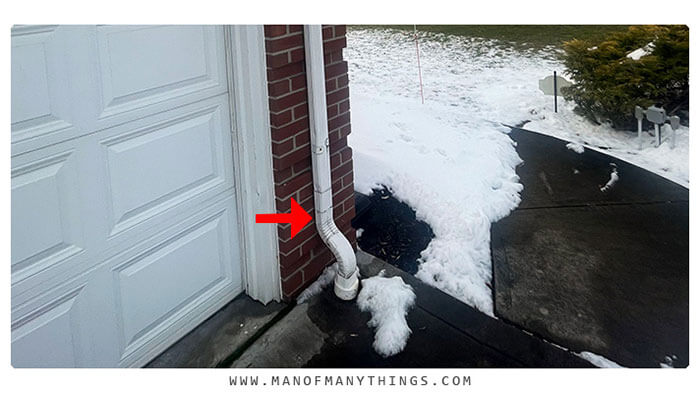
- Does it work perfectly?
- What materials are being used for the stormwater drainage system?
- What’s the useful life of those materials?
- How much life (if any) is left in those materials? (since most stormwater drains are underground, you may have to make an educated guess based on its current condition)
The Natural Gas System
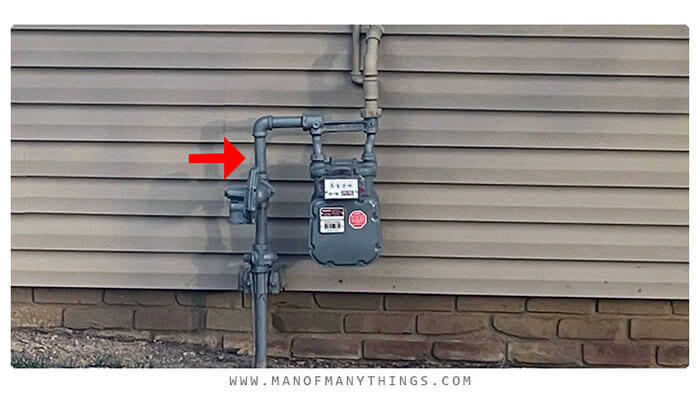
- What materials are being used for the natural gas system?
- What’s the useful life of those materials?
- What size natural gas line is coming into the house?
- Where is the gas meter located?
Learn your electrical systems
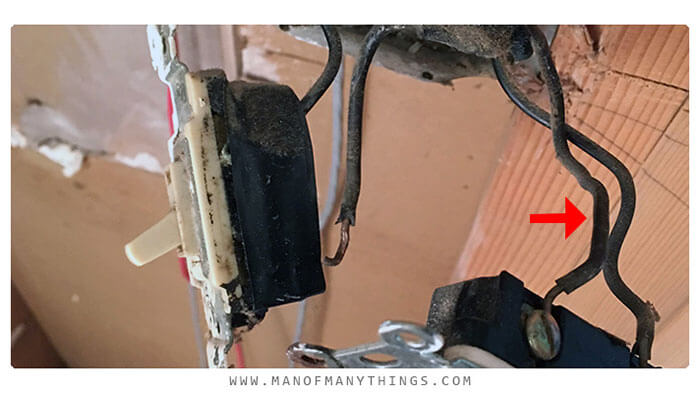
Your electrical systems are likely to be a lot simpler than the plumbing systems. So, here are some questions you should be asking and finding answers to:
- How many amps feed your main electrical panel?
- What kind of wiring do you have?
- Do you have GFCIs in the right locations?
- Do your outlets and GFCIs work?
- Are your outlets “backstabbed”? (I’ve seen outlets melt and cause a fire due to this)
- Do you have the correct circuit breakers for the wiring used? (one of my rental units had 30 amp breakers for every single circuit while most wiring was 14 gauge).
Learn your heating and cooling systems
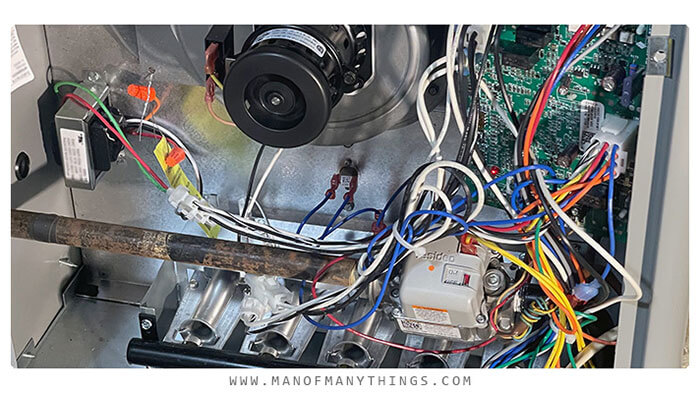
Your heating and cooling systems can vary drastically based on your location and the way your house was built. Regardless, here are questions to ask and find answers to:
- What type of heating and cooling system do you have?
- What is the model name/number for the heating and cooling system (this makes it easy to look for parts when needed)
- How old are the units?
- What is the expected useful life of the units?
- What repairs or modifications can be made to improve the lifespan or prevent emergencies?
- What parts are likely to go out and need replacing?
Learn your attic
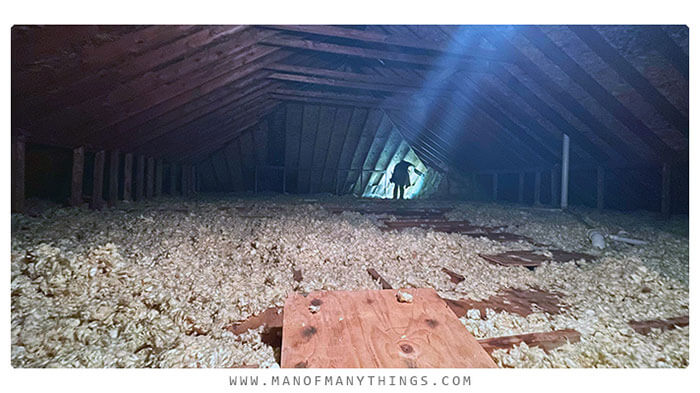
If you’re wondering what “learn your attic” means, I can explain it in 2 parts:
- attic insulation levels
- attic ventilation (if you have a vented attic)
The better those 2 things are, the less likely you are to have problems with:
- mold growth in the attic
- premature failure of your roof
- leaks on the ceiling that are not coming from a roof leak
So your main task for learning the attic in your rental property is to:
- make sure you have enough attic insulation for your region
- make sure your attic has enough ventilation (if vented)
While less profitable in the short term, air sealing your attic from the living space is also valuable. This slows the amount of air that can transfer into the attic from the living space (helping to reduce condensation and mold).
However, air sealing is a big job – so it’s not something I would recommend doing if you’re only getting the rental property ready again after tenant turnover. But, if after tenant turnover you don’t mind having a vacant property for a couple of weeks longer – you should be able to air-seal the attic properly.
Decide how you’d like to manage your rental property
I believe there are two different styles of property management:
- A property manager that maximizes rental income and cash flow
- A property manager that minimizes stress
Most property owners that I’ve talked to that hire a property manager are looking for someone who can maximize cash flow. I, on the other hand, prefer to minimize stress and major repairs while tenants live in the property.
I find this prevents a lot of tenant complaints, is a better experience for new tenants, and makes it easier for a DIY landlord that also works a full-time job.
Managing a rental property to maximize cash flow
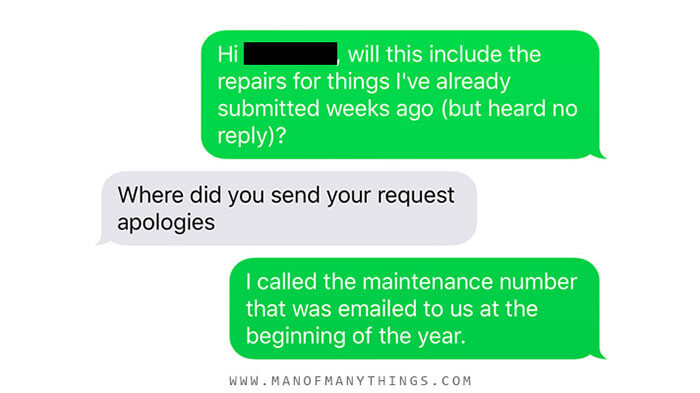
Managing rental properties to maximize cash flow works for a lot of property management companies. It allows you to get the most out of the systems in your rental property by only replacing things when they break or are very likely to break soon.
You typically won’t waste money replacing things before they break and on paper, this is great for the rental property’s finances and cash flow.
In my opinion, this style of managing rental property seems like it would be great if you were planning on selling your property within the next 12-24 months.
However, when things do break – this usually leads to more damage that needs to be fixed compared to if things were replaced before they broke. It also means more inconvenience for tenants.
And good tenants won’t deal with as much inconvenience compared to bad tenants – because they know they have a much bigger pool of rental property to select from.
Managing a rental property for lower stress
Managing rental properties for lower stress and fewer major repairs while tenants live in the property is my preferred style of property management. This style focuses a lot on the useful life of systems and how likely they are to break at an inconvenient time.
On a yearly basis, cash flow is lower with this style of property management. However, cash flow tends to be more steady over the long term.
I believe that this style is more suited for landlords that plan to own rental property for a long time. The reduced stress from fewer emergency repair requests makes this ideal for landlords who do their own property management while also working a full-time job.
I also believe that a good tenant will appreciate the reliability of coming home and things working as they should. And, if something does break, they’re more understanding because it’s not a regular occurrence.
Finding Tenants
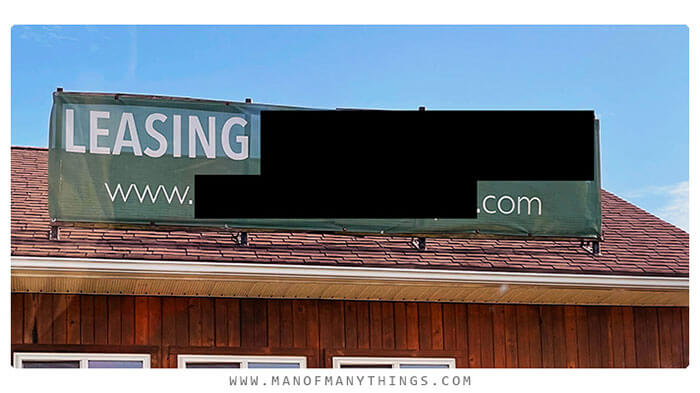
Your success as a landlord/property manager will be strongly influenced by your ability to find good tenants to rent your property to. This entire process can be condensed into a couple of processes:
- Marketing your property to prospective tenants
- Tenant screening process
Recommended Reading: How To Find Good Renters
Marketing your property to potential tenants
Marketing your property well will help you get in front of a lot of potential tenants. This increases the likelihood of securing high-quality tenants for your property.
My recommendations for where to market your property are:
- Online marketplace (Apartments.com, Zillow, Redfin, etc..)
- Word of mouth
- Email Marketing
Tenant screening process
Screening tenants can be a complex process depending on your local market conditions. Before you start, I’d recommend consulting with a local real estate attorney to help you abide by both fair housing laws and any local laws that could affect your screening process.
Regardless, this is the most important part when looking for a new tenant.
I recommend creating a couple of requirements for potential tenants to see before applying for your property:
- Income amount relative to the price of rent
- Credit score
You also want to have an application process for each potential tenant to fill out.
I use Apartments.com’s Rental Manager for this. Using the information from that application, you want to screen your tenants. The simple and easy way to do this is to use a tenant screening service such as MySmartMove.
The information you receive from the application and tenant screening will let you know if you can rent to that specific tenant (due to your requirements).
Creating your lease agreement
How you go about creating a rental agreement will depend on how many rental properties you manage. This is an area that I recommend using a local real estate attorney to help you create a lease that will be valid should you have to take legal action against a tenant.
However, if you’re a landlord that only manages a few properties, you should be able to use a service such as LegalZoom to help create a lease agreement. I would still recommend paying a local real estate attorney to look over it to make sure it’s valid in your state (and that you’re not breaking any landlord-tenant laws).
With that said, your lease should include:
- Security deposit amount
- Rent amount
- When the rent is due
- The late fees associated if rent isn’t paid on time
- The tenant’s responsibility
- The landlord’s responsibility
Manage rental property finances for success
Creating and implementing a system for your property’s finances is crucial for having a successful investment property and being a successful property manager. Although finances can be a pretty complicated topic, I’m going to break it down into a few easy-to-digest areas:
- Accounting/bookkeeping
- Collecting rent and other payments
- Future planning
By making sure those 3 areas are covered, you should be able to manage the financial side of managing a rental property without getting overwhelmed.
Rental property accounting and bookkeeping
Staying on top of your accounting and bookkeeping will help you know exactly how successful your rental property is from a financial standpoint.
There are different types of software available online that you can use to help with this. I’ve tried 3-4 different “rental property owner” focused apps and I always find myself returning to spreadsheets (specifically Google Sheets but excel works too).
I like to follow the “KISS” method, which stands for “Keep It Simple, Stupid”.
This means I tend to keep my accounting as simple as possible while still getting the job done. I don’t create a lot of the fancy reports that some of the online software creates – but that’s because I don’t need them.
When I first became a landlord, all I had was a spreadsheet/log with the following columns:
- Date
- Payee
- Category
- Amount
- Additional notes
That’s it. As time went on, there were reports that I wanted to see – so I made them by pulling data from my first spreadsheet.
As long as you have a log of what you’re spending and bringing in, you can always create reports later on.
Collect rent payments
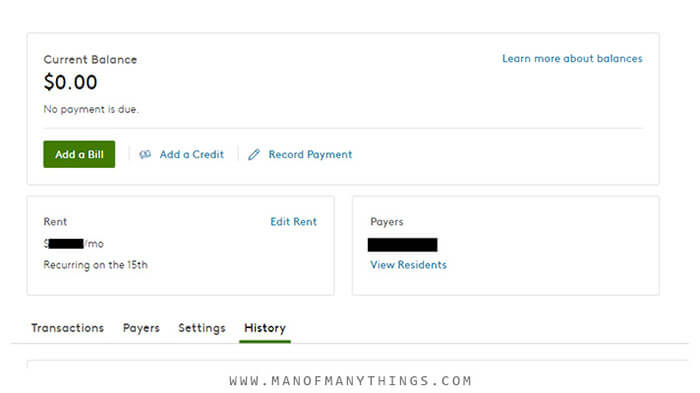
Collecting monthly rent payments is the highlight of being my own property management company. I immediately know when a tenant is paying on time, late, or not at all. Because it’s all under my control and the information is quickly available, I can make good decisions if I need to.
I recommend all landlords collect rent and security deposits online. It’s easy to set up and software such as Apartments.com’s Rental Manager (what I use) has other benefits – such as rent reminder emails and automatic late fees.
Future planning
Future planning allows you to get an idea of the expected financial success in a few years. For those of us looking to eventually retire, planning for the future can help us identify what tasks we need to do in order to reach that goal of retirement.
Planning for the future can also help us create a maintenance schedule that allows us to repair and replace things when it’s time versus when it breaks.
Rental property maintenance requests
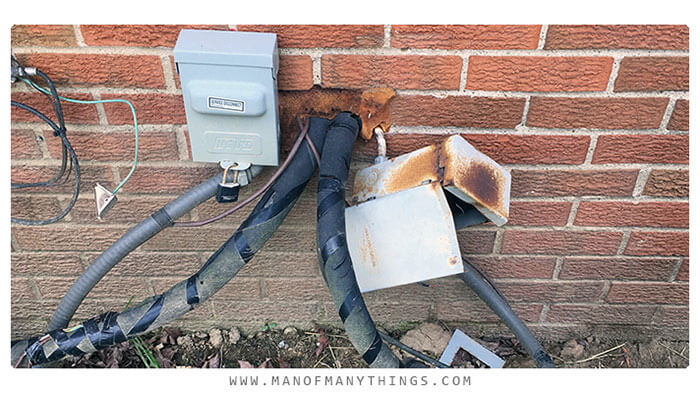
Your tenants are going to have maintenance requests. It’s only natural that things will break when they’re being used.
So, you need to have a process for how tenants should contact you about it.
Since I don’t have many units/properties, I tell my tenants to shoot me a text message or email and I’ll contact them back asap.
However, if you have a lot of units or someone who handles the maintenance side of things – I’d recommend using the “maintenance requests” feature in Apartments.com’s Rental Manager.
Although I haven’t used the maintenance request feature myself, I use a few of the other features inside their rental manager and it’s worked perfectly for me so far. I don’t see why the maintenance request feature would be any different.
Tenant turnover
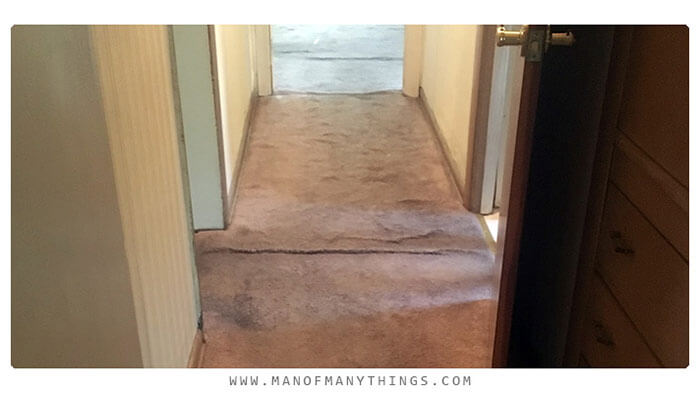
When the time comes that a tenant gives notice that they won’t be renewing their lease, your tenant turnover process starts.
The main things you need to know in order to get the property in top shape for the next tenant are:
- What’s broken that needs to be fixed
- What’s ugly that needs to look better
- What’s dirty that needs to be cleaned
- What needs to be replaced to reduce major repairs for the next tenants
The sooner you know the information above, the better you’ll be able to plan and execute once the tenant has moved out.
Every day your property sits empty without a paying tenant is a day that you have to come out of your own pocket to pay for the property.
Frequently Asked Questions:
How do I manage my first rental property?
Learn as much as you can (including the information in this guide) and start working. You’re going to make a lot of mistakes but that’s OK. Mistakes are also a part of learning.
How hard is it to manage a rental property?
In my opinion, the more knowledgeable and organized you are – the easier it is. The hard part is figuring out what you need to know and how to organize it. Occasionally, you’re going to have hectic moments (such as bad tenants or major maintenance problems) – but if you plan accordingly, you shouldn’t have many of those.
Should I hire a property manager?
If you don’t want to deal with tenants, yes. If you don’t mind tenants and want to save money on property management fees – no, do it yourself.
What should I do with security deposits from tenants?
Save it. Hopefully, when the tenant eventually moves out, you’ll be able to give it back to them. However, depending on your lease, if they destroy the property – you’ll be happy you have the security deposit saved.
